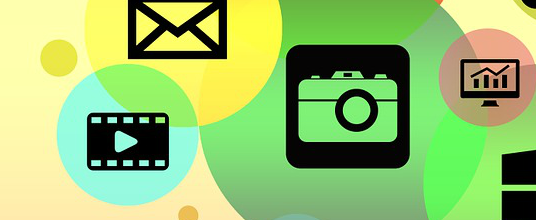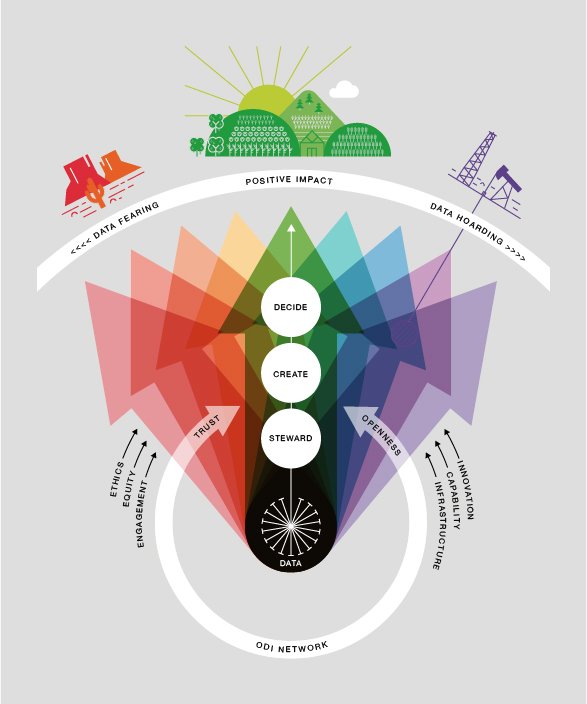
A joint BBC–ODI workshop invited charities and businesses from the finance, sports and technology sectors to discuss possible future data-powered services and the BBC's public service mission
Our prolific use of computers, the internet and the web mean we live in a changed and changing world. Data has become essential to our lives; it has become a new form of infrastructure that underpins our economies and societies. But many organisations and people are still working out how to adapt to this change while it can sometimes seem that our daily news is full of stories about the latest misuse of data.
To help it both adapt to and shape this world the BBC is looking at its current mission ‘to enrich people's lives with programmes and services that inform, educate and entertain’ and wondering ‘what might an internet that upholds public service values look like?’. Teams at the BBC are experimenting with new technologies, like artificial intelligence, and working with external organisations, like the team here at the Open Data Institute (ODI).
A data workshop with attendance from charities and businesses

Recently we facilitated a workshop about data for the BBC. It was attended by people from a number of charities and businesses from the finance, sports and technology sectors.
We set the scene by discussing the role of the BBC and the relationship of its public service mission to the the other organisations represented in the room. We thought about what data-powered services might emerge in the future. At the ODI we talk about three possible futures: the wasteland, the oil field and the farmland future. We think that understanding what future you want to help create, and which ones you don't, can help lead to better decisions in the present.
The group split up to focus on three scenarios:
- Helping people manage personal data to get fitter and healthier.
- Helping people manage personal data to make better decisions (eg financial, educational, emotional) by learning about themselves through self-reflection.
- Helping people manage personal data to support the causes and ideas they are passionate about.
For each one we discussed what similar services already exist, if any have scaled to support a large number of citizens, and if not, why not? What kind of service would do this differently/better than services already available? What risks and opportunities are opened up by using data to address these problems? What conditions would need to be in place to make these services work?
Themes arising from the discussions
Some of the things discussed were very familiar such as how to value data, who should 'own' or 'control' data and different types of data. At the ODI we are working on better ways to value data; valuation can depend on a number of factors including the type of data and how it is being used and combined with other datasets.
Often valuation is seen purely through an economic lens, but many of the organisations in the room felt that there was huge potential for the data to be used to offer social value. The debate over 'ownership' and 'control' is a complex one with few simple answers and this issue came up repeatedly in our conversations. At the ODI we believe that the language of 'ownership' does not always lead to useful thinking, but that individuals, communities, businesses and government should all have a level of control, rights and responsibilities over data.
There was a strong emphasis on the need for an equitable share of the value created by data, of organisations using data to empower both individuals and communities, and of helping elevate the voice of people in debates about data and helping people understand the basics of data. The debate about data literacy – or data literature as we sometimes call it – focused on helping people to make more informed decisions. For example, a decision about whether or not to use a personal data service, or choices in wider political debates about data.
Three ideas for services with public service values
The groups imagined three new possible ways of using data that they thought enhanced public value and that could also be used to help build greater data literacy:
- A not-for-profit intermediary that helps people to contribute data to multiple charities. The charities would use the data to tackle problems aligned with their mission, while the not-for-profit intermediary would commit to not using or financially profiting from the data.
- A service that uses data to help people choose a suitable activity in selected areas such as sport or hobbies – eg finding pottery classes or canoe coaching. The service then connects them either with experts or with other people with similar requirements so that they could learn from and motivate each other.
- A service that helps people track their food purchases and their health – and then publishes aggregated data openly so that anyone could assess the impact of policy interventions around health, for example the ‘sugar tax’ or Scotland's policy on minimum pricing for alcohol.
Each of these services would need a mix of personal and non-personal data. For example the health service would need combine to personal data, such as shopping receipts, with non-personal data, such as the ingredients of a tin of baked beans made by different manufacturers, and publish aggregated non-personal data such as the number of tins of baked beans eaten by people who live in Whitley Bay.
Organisations, perhaps working in partnership, could also build services like these openly, for example by developing open source code, while using and publishing as much open data as possible. This could be a way of using data to offer both economic and public value by educating people on how to build things using data, and give them a starting toolkit which they could adapt and remix to build their own services.
What's next?
None of us expected to come up with world-changing ideas and working services – not from a single session – but we we wanted to jointly increase our understanding about how the public service space could use data in a unique way; and of how partnerships between data-literate businesses, charities and other organisations could help new data-powered services to emerge. None of these ideas represent current or even planned projects, so it showed us that we were managing to explore a space outside the existing terms of reference.
We think we achieved that goal and we look forward to working more with the BBC to help it play a role in building an open and trustworthy data ecosystem.